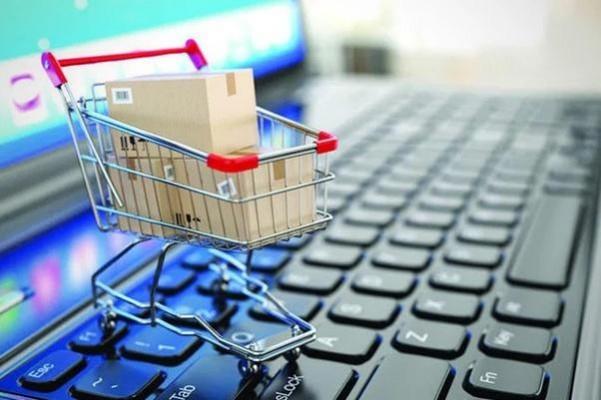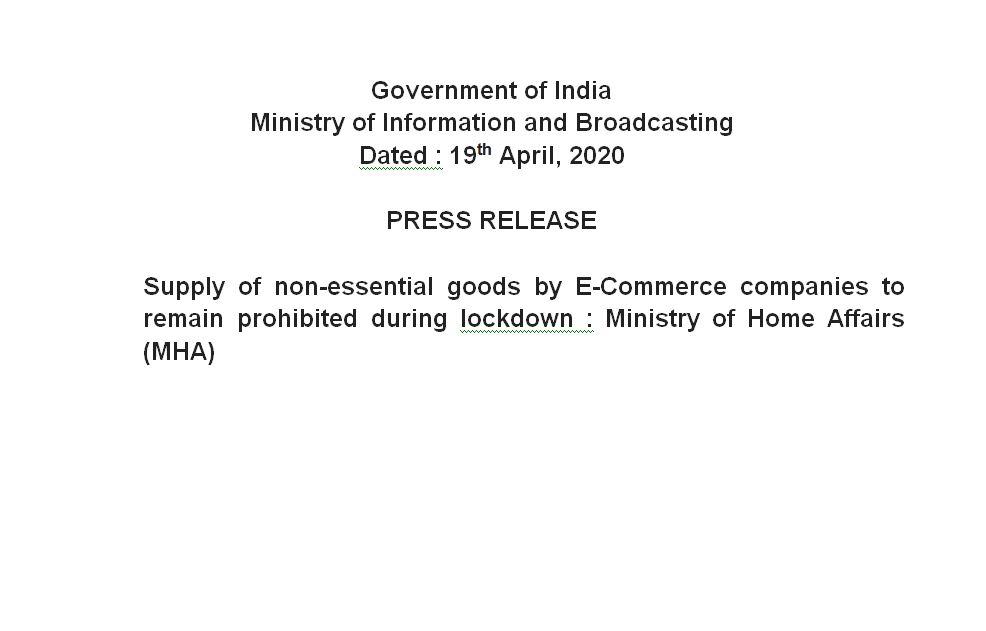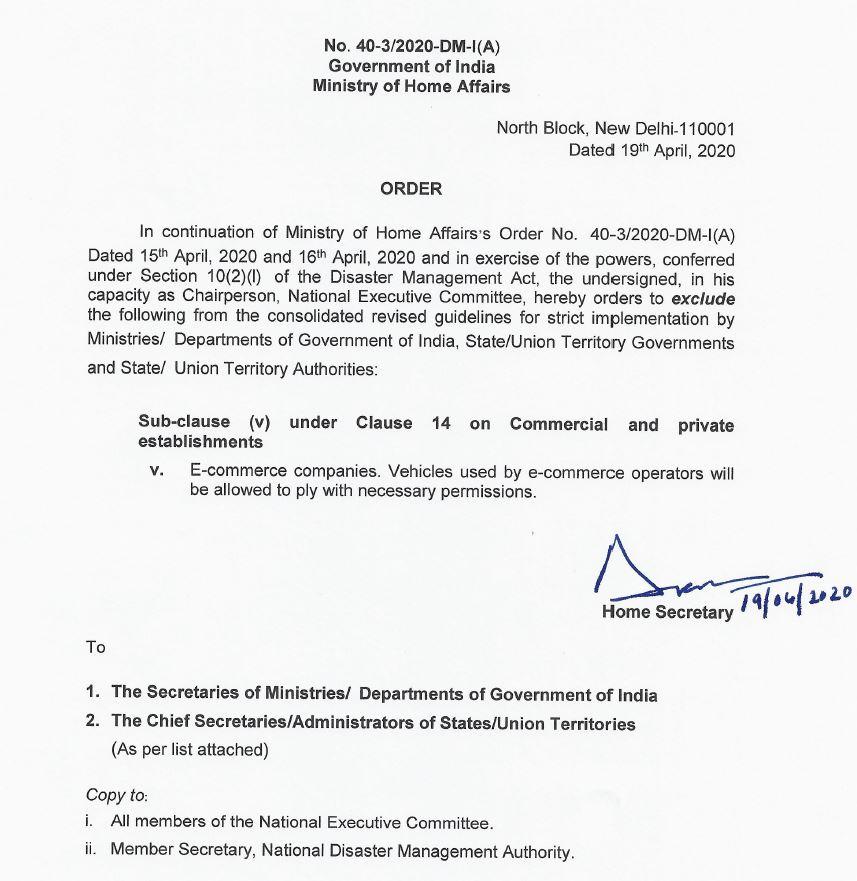In case you were wondering about what to buy on e-commerce platforms, including Amazon, Flipkart, and Snapdeal, after April 20, there is bad news. The Ministry of Home Affairs has issued fresh guidelines for e-commerce firms amid the ongoing nationwide lockdown over the coronavirus pandemic.

Revising its decision on allowing e-commerce companies to sell non-essential goods post-April 20, the MHA stated that the ban on procurement of non-essential items will continue, which means no phones, laptops, refrigerators, clothes, television sets, etc can be bought online.
According to the new guidelines, online buying of non-essential goods will not be allowed. However, there is no restriction on online shopping for essential items.
"E-commerce companies (and) vehicles used by e-commerce operators will be allowed to ply with necessary permissions' - is excluded from the guidelines," an order by Home Secretary Ajay Bhalla stated.
Earlier, the central government's decision to sell some non-essential goods, through e-commerce platforms, in areas least affected by the Covid-19 pandemic, was criticised by the Confederation of Indian Traders (CAIT).
"More than 40 lakh traders are supplying essential goods since lockdown came into effect. Side-lining and ignoring them, e-commerce companies have been allowed to deliver non-essential goods from April 20," Praveen Khandelwal, CAIT Secretary-General, told news agency ANI.
"When the lockdown was announced these e-commerce firms suspended operations. We want to know today what is the necessity for which they have been given permission. We have no objection if they are given permission to provide essential services, but why non-essential goods," he further asked.
Economic activities to begin from Monday
The exemption will be applicable from tomorrow, in those areas of India where the effect of Covid-19 is negligible, or which are less affected areas.
Union Law and Telecom Minister Ravi Shankar Prasad took to Twitter to tweet a list, which includes healthcare, agriculture, horticulture, fisheries and animal husbandry.
Also, a meeting of the Group of Ministers headed by Defence Minister Rajnath Singh was held on April 18. After the meeting, it was said that any relaxation during the lockdown will be as per the guidelines issued by the MHA. But state governments can also strictly enforce the rules on their own.
The Centre has exempted projects and activities related to co-operative credit societies, non-banking financial institutions, water supply, electricity and communication in rural areas of the country.
Items such as bamboo, coconut, betel nut, cocoa, spices cultivation, harvesting, processing, packaging, fruit and vegetable carts, shops selling sanitary items, grocery and ration shops, dairy and milk booths, poultry, shops selling meats, fish and fodder, electricians, IT repairs, plumbers, motor mechanics, carpenters, couriers, DTH and cable services will be allowed with certain restrictions.
All the e-commerce firms have been asked to start work from April 20 but will have to get the necessary clearance for delivery vehicles.
(With agency inputs)

















